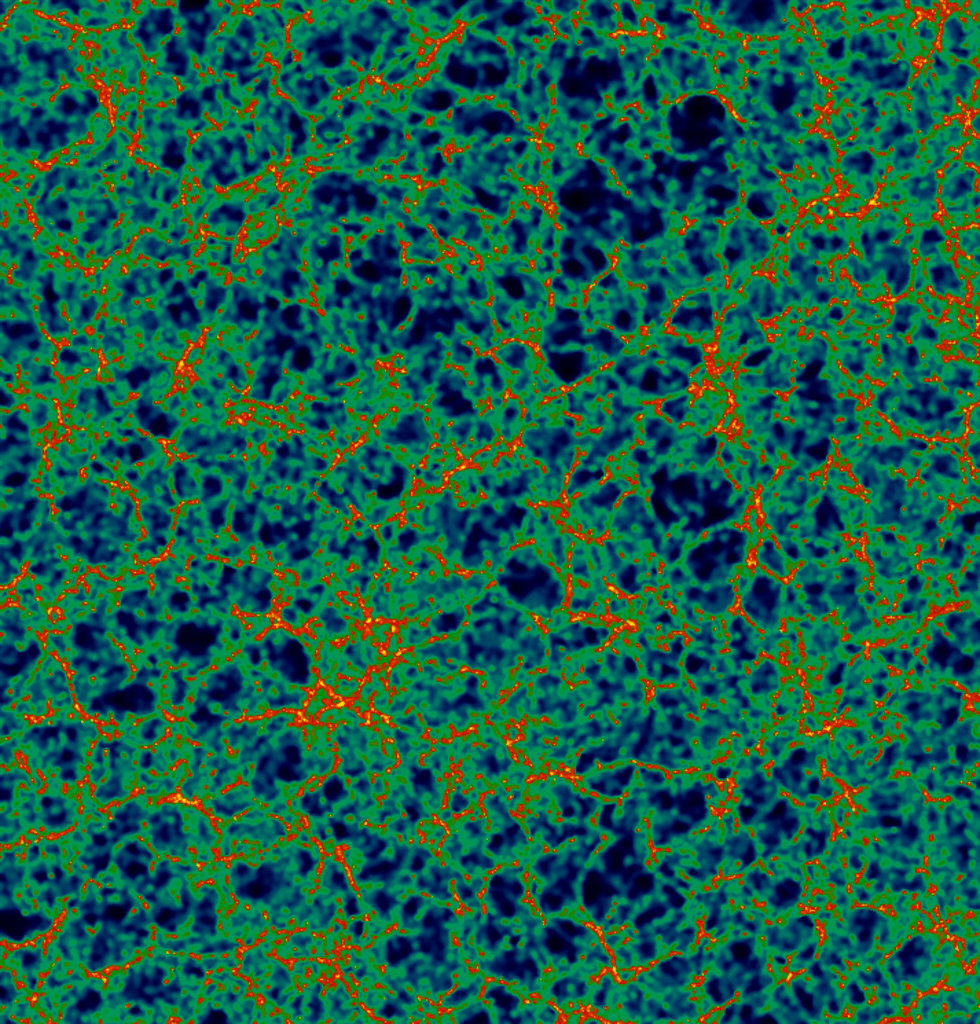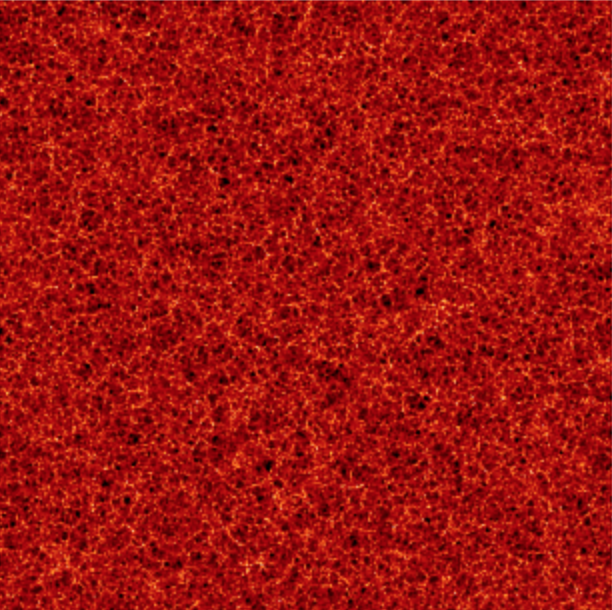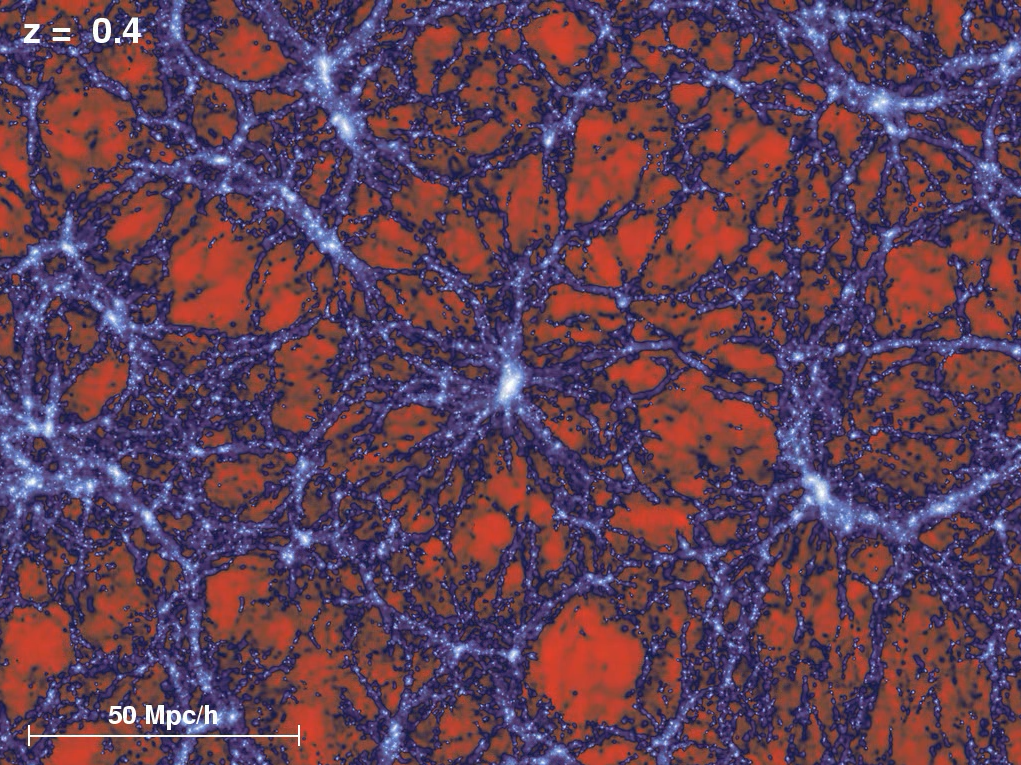
About
The Hubble Volume Project is a joint effort of the Virgo Consortium and collaborators in U.S., Canada, U.K., and Germany. To study the formation of clusters of galaxies, filaments and void-structures, a significant fraction of the entire observable universe is modelled and simulated by employing one billion(=1000000000) mass particles. This is the largest such computer simulation ever done. The 512-processor Garching T3E parallel computer was used for this simulation, which produced almost a Terabyte of output data in some 70 hours.
An important aspect associated with the Hubble Volume Simulations is that data are output along a light-cone so the clustering evolution is incorporated in output data.

Reference
The initial paper for “The Hubble Volume Project” has been published as Colberg et al. 2000. For more information please visit MPA’s project description page.

